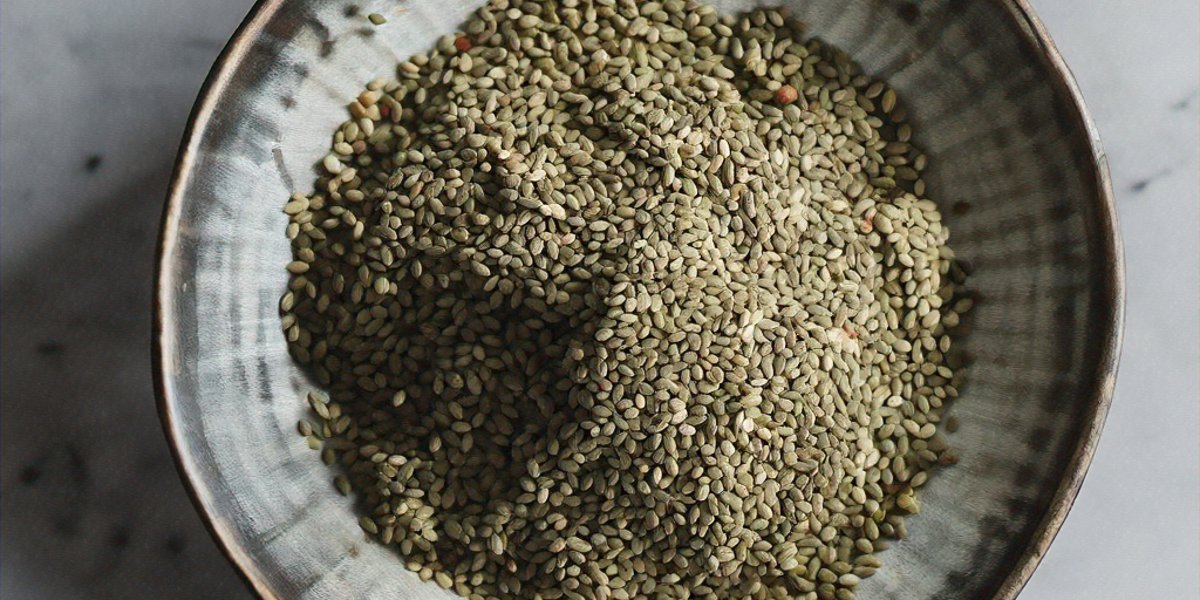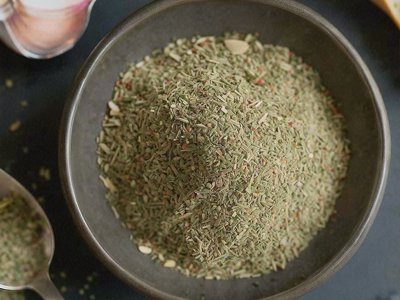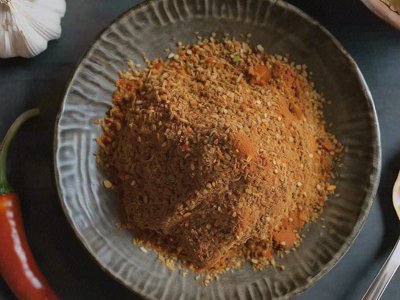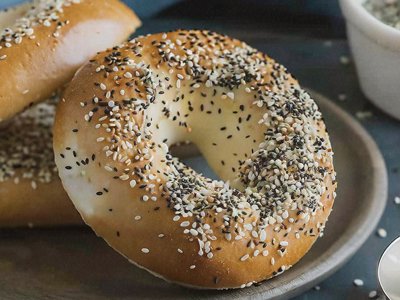Zaatar
Zaatar is more than a spice blend - it's a cultural touchstone of the Middle East. This aromatic mixture combines the earthy depth of wild thyme with the bright acidity of sumac, creating a flavor profile that's both familiar and exotic. The name refers both to the wild thyme plant and to the finished blend.
The Blend
Primary Herbs:
- 3 tablespoons dried wild thyme (zaatar herb - the heart of the blend)
- 2 tablespoons ground sumac (provides tart, lemony brightness)
- 2 tablespoons toasted sesame seeds (adds nutty richness and texture)
Supporting Herbs:
- 1 tablespoon dried oregano (complements thyme with Mediterranean notes)
- 1 tablespoon dried marjoram (adds sweet, floral complexity)
- 1 teaspoon dried mint (optional - adds brightness)
Optional Enhancements:
- 1/2 teaspoon ground cumin (for earthy depth)
- 1/2 teaspoon ground coriander (adds citrus notes)
- 1/4 teaspoon sea salt (enhances all flavors)
The Thyme Factor
Wild thyme (Thymus serpyllum) is the essential ingredient that gives zaatar its distinctive character. It's more aromatic and slightly more bitter than common garden thyme. If wild thyme isn't available, use the best quality dried thyme you can find, but the flavor won't be quite the same.
The thyme should be crumbled but not powdered - you want to maintain some texture and visual appeal in the final blend.
Sumac's Role
Sumac is what makes zaatar truly special. This tart, red berry powder adds a bright, lemony acidity that balances the earthiness of the herbs. It's also rich in antioxidants and has been used medicinally for centuries.
Look for deep red sumac powder - it should be vibrant, not dull or brownish. Turkish or Syrian sumac is typically the best quality.
Sesame Seed Technique
The sesame seeds must be toasted to bring out their full flavor. Toast them in a dry pan over medium heat until they're golden brown and fragrant, about 3-4 minutes. Watch carefully - they burn easily.
Let the seeds cool completely before adding them to the blend. Warm seeds can cause the herbs to lose their essential oils.
Storage and Freshness
Store in an airtight container in a cool, dark place. The sesame seeds will go rancid before the herbs lose their flavor, so this blend is best used within 2-3 months. For maximum freshness, make smaller batches more frequently.
Traditional Uses
Flatbreads: The classic application - brush with olive oil, sprinkle with zaatar, and bake Labneh: Mix into strained yogurt for a flavorful dip Olives: Toss with zaatar and olive oil for instant appetizer Eggs: Sprinkle over fried or scrambled eggs
Modern Applications
Popcorn: A sophisticated alternative to butter and salt Roasted Vegetables: Especially potatoes, carrots, and cauliflower Grilled Meats: Creates a flavorful crust on chicken and lamb Salad Dressings: Mix with olive oil and lemon for instant vinaigrette
Regional Variations
Lebanese Zaatar: Often includes more sumac and sometimes dried mint Syrian Zaatar: Tends to be heavier on thyme and lighter on sumac Palestinian Zaatar: May include wild hyssop (ezov) for additional complexity Turkish Zaatar: Sometimes includes dried savory or other local herbs
Pairing Considerations
Zaatar works beautifully with:
- Olive oil (the classic combination)
- Lemon juice (enhances the sumac's brightness)
- Garlic (adds depth and complexity)
- Yogurt (creates creamy, tangy sauces)
- Fresh herbs like parsley and mint
Beyond the Blend
Zaatar can also refer to the wild thyme plant itself, which is sometimes used fresh in cooking. The fresh herb has a more delicate flavor than the dried version and is excellent in salads and as a garnish.
This blend represents the essence of Middle Eastern hospitality - simple ingredients combined with care to create something greater than the sum of its parts.



